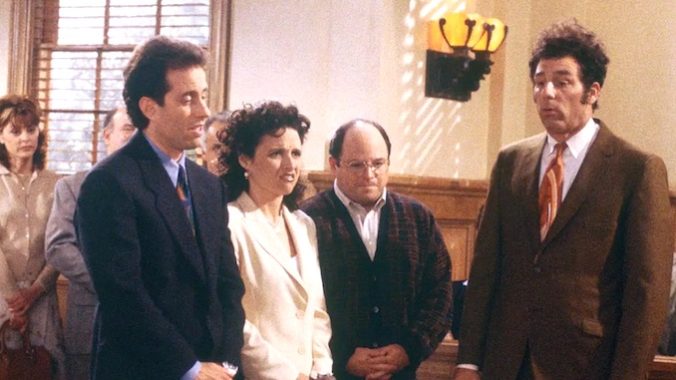That’s All, Folks: Seinfeld’s Series Finale Finally Turned Nothing into Something
Photo Courtesy of NBC
Most scripted television shows end in cancellation, so there’s something special about the ones that get the chance to go out on their own terms. This year, Ken Lowe is revisiting some of the most influential TV shows that made it to an officially planned final episode. That’s All, Folks is a look back at television’s most unforgettable series finales.

It is my own fault that, when I started That’s All, Folks!, I described the premise as being television’s most unforgettable series finales, rather than the finales from television’s best shows, or my favorite ones personally. No, I held myself to a standard of historical relevance when laying out this monthly column, and integrity demands that I follow through on it. We had to get to the ’90s at some point. At some point, we had to get to Seinfeld, a TV show dreamed up in a lab by Larry David to specifically put me through sensory torture.
-

-

-

-

-

-

-

-

-

-

-

-

-

-

-

-

-

-

-

-

-

-

-

-

-

-

-

-

-

-

-

-

-

-

-

-

-

-

-

-









































